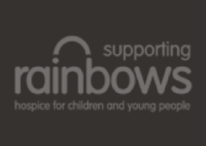
How to sell yourself during an interview
So you’ve got a killer CV, and probably a knockout covering letter, which means you’ve already made it through the first stage of the application process.
However, now is not the time to drop the mark. An interview is your opportunity to showcase your skills, personality, tell employers why you are the best candidate for the job and how you will fit into the company. If you have an upcoming interview and are unsure as to how to sell yourself, then this blog is for you.
1. Prepare, prepare, prepare
Before your interview, there are a few things that you need to make sure you’re doing to ensure you are as prepared as you can be. We recommend that you research the company in as much detail as you can, in order to ensure that you know them inside and out, and could imagine yourself working there. In doing so, you can bring up points in the interview that will let your interviewer know that you are invested in their company.
In addition to this, we recommend that you review your strengths, skills and qualities and start to think about how they relate to the job and will put you ahead of the competition. In doing this, you will be able to prep answers for any questions that may come your way.
This is also something that your interviewer will expect you to know, so make sure that you don’t get caught out by simple questions in your interview. If this is something that you struggle with, then we suggest reflecting on feedback that you’ve been given from your tutors, peers or colleagues.
Is there a specific quality that people tell you they admire in you? Do you constantly get asked about how you do a certain thing? Do people come to you for advice about a certain topic? All of these are key indicators that this is something that you excel in, so use this to your advantage.
2. Draw on your experience
Once you have worked out what your skills are, and have thought about how you may weave these strengths into your answers, your next step should be to think about times when you have experienced these situations. Anybody can say that they do well under pressure, but interviewers want to know about instances where you have been put under pressure and how you dealt with it. We suggest that you start by directly answering the interviewer’s question, and then follow that up with a personal statement in which you have experienced the situation.
3. Think outside the box
Most of the time, interviewers like to throw a few creative questions into your interview to see how you will react under pressure, however, there are certain questions that will inevitably be asked. In which case, you should avoid going for obvious, cliché answers. For example, “tell me about yourself” is a very common question and you may find yourself structuring your answers to hit certain criteria that they have asked for in the job application. While this is a good place to start, this isn’t where your answer should stop. We suggest that you answer questions like this with a brief description of your professional history, your accomplishments, any experience you have, career goals and what you’re most proud of, and then follow this up with something that they don’t know about you.
While all of the above will be important to your interview, these are all things that they will already know from your cv and cover letter. As we mentioned earlier in the blog, the interview stage of the application process will be your opportunity to show your personality, so take advantage of this and draw from your experiences and your research.
And most of all best of luck!
Top tip: If you don't get offered the job from the 1st interview, don't get too down hearted. Think of it as good practice ready for the next one, which will come along. So stay upbeat and keep at it.
If you need any further advice for the interview or job application process, then we recommend that you check out some of our other posts on our job tips page.
- Recruitment
- Our Services
- Insight
- Contact
- Call 0116 254 5411
- hello@precision-people.uk
- Social







